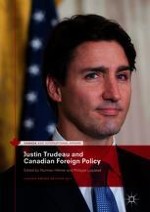2018 | OriginalPaper | Chapter
10. Canada’s Feminist Foreign Policy Promises: An Ambitious Agenda for Gender Equality, Human Rights, Peace, and Security
Authors : Rebecca Tiessen, Emma Swan
Published in: Justin Trudeau and Canadian Foreign Policy
Publisher: Springer International Publishing
Activate our intelligent search to find suitable subject content or patents.
Select sections of text to find matching patents with Artificial Intelligence. powered by
Select sections of text to find additional relevant content using AI-assisted search. powered by
